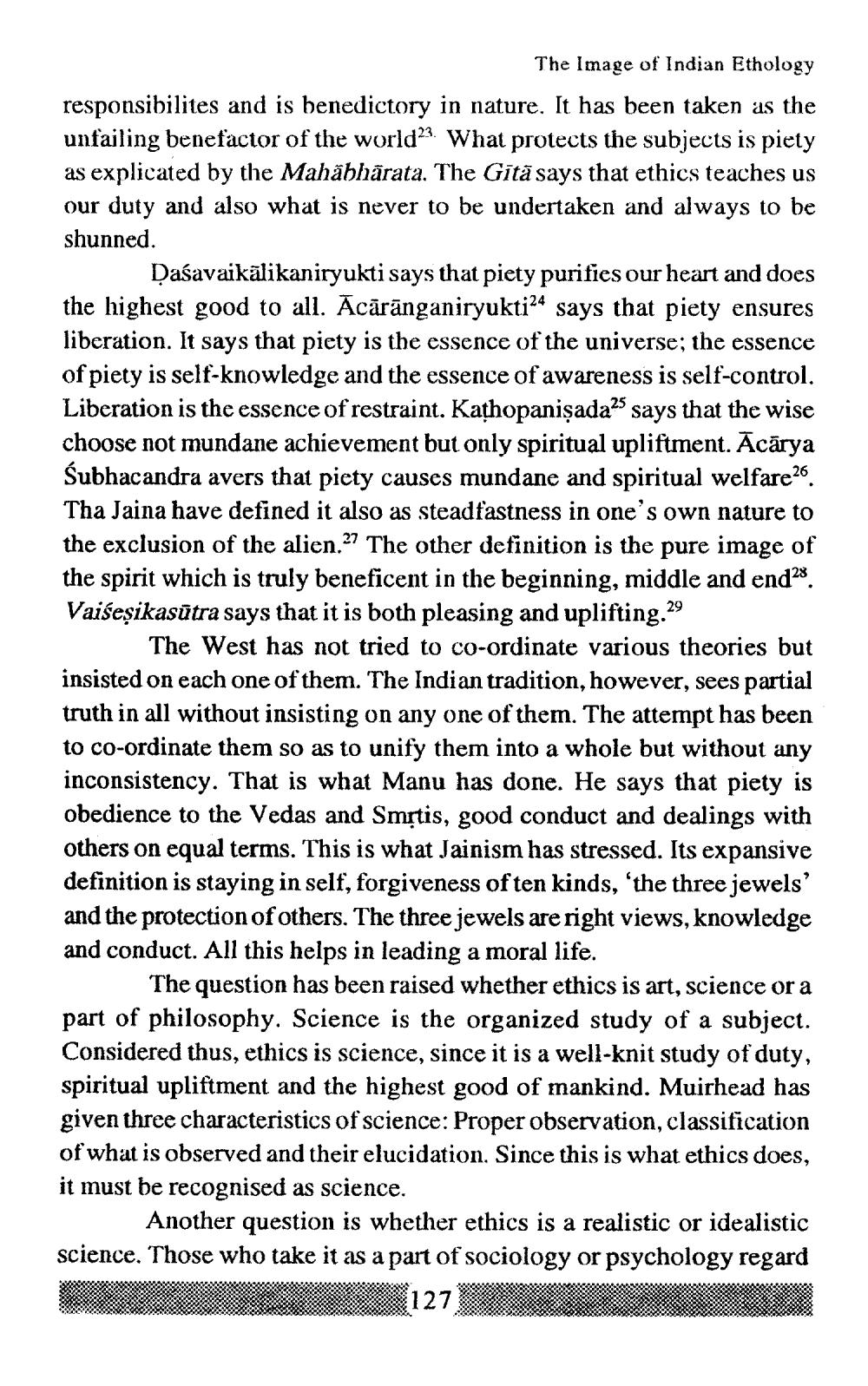________________
The Image of Indian Ethology responsibilites and is benedictory in nature. It has been taken as the unfailing benefactor of the world23. What protects the subjects is piety as explicated by the Mahabharata. The Gītā says that ethics teaches us our duty and also what is never to be undertaken and always to be shunned.
Daśavaikalikaniryukti says that piety purifies our heart and does the highest good to all. Acaranganiryukti24 says that piety ensures liberation. It says that piety is the essence of the universe; the essence of piety is self-knowledge and the essence of awareness is self-control. Liberation is the essence of restraint. Kathopaniṣada25 says that the wise choose not mundane achievement but only spiritual upliftment. Acārya Subhacandra avers that piety causes mundane and spiritual welfare26. Tha Jaina have defined it also as steadfastness in one's own nature to the exclusion of the alien.27 The other definition is the pure image of the spirit which is truly beneficent in the beginning, middle and end28. Vaiseṣikasūtra says that it is both pleasing and uplifting.29
The West has not tried to co-ordinate various theories but insisted on each one of them. The Indian tradition, however, sees partial truth in all without insisting on any one of them. The attempt has been to co-ordinate them so as to unify them into a whole but without any inconsistency. That is what Manu has done. He says that piety is obedience to the Vedas and Smrtis, good conduct and dealings with others on equal terms. This is what Jainism has stressed. Its expansive definition is staying in self, forgiveness of ten kinds, 'the three jewels' and the protection of others. The three jewels are right views, knowledge and conduct. All this helps in leading a moral life.
The question has been raised whether ethics is art, science or a part of philosophy. Science is the organized study of a subject. Considered thus, ethics is science, since it is a well-knit study of duty, spiritual upliftment and the highest good of mankind. Muirhead has given three characteristics of science: Proper observation, classification of what is observed and their elucidation. Since this is what ethics does, it must be recognised as science.
Another question is whether ethics is a realistic or idealistic science. Those who take it as a part of sociology or psychology regard
127




